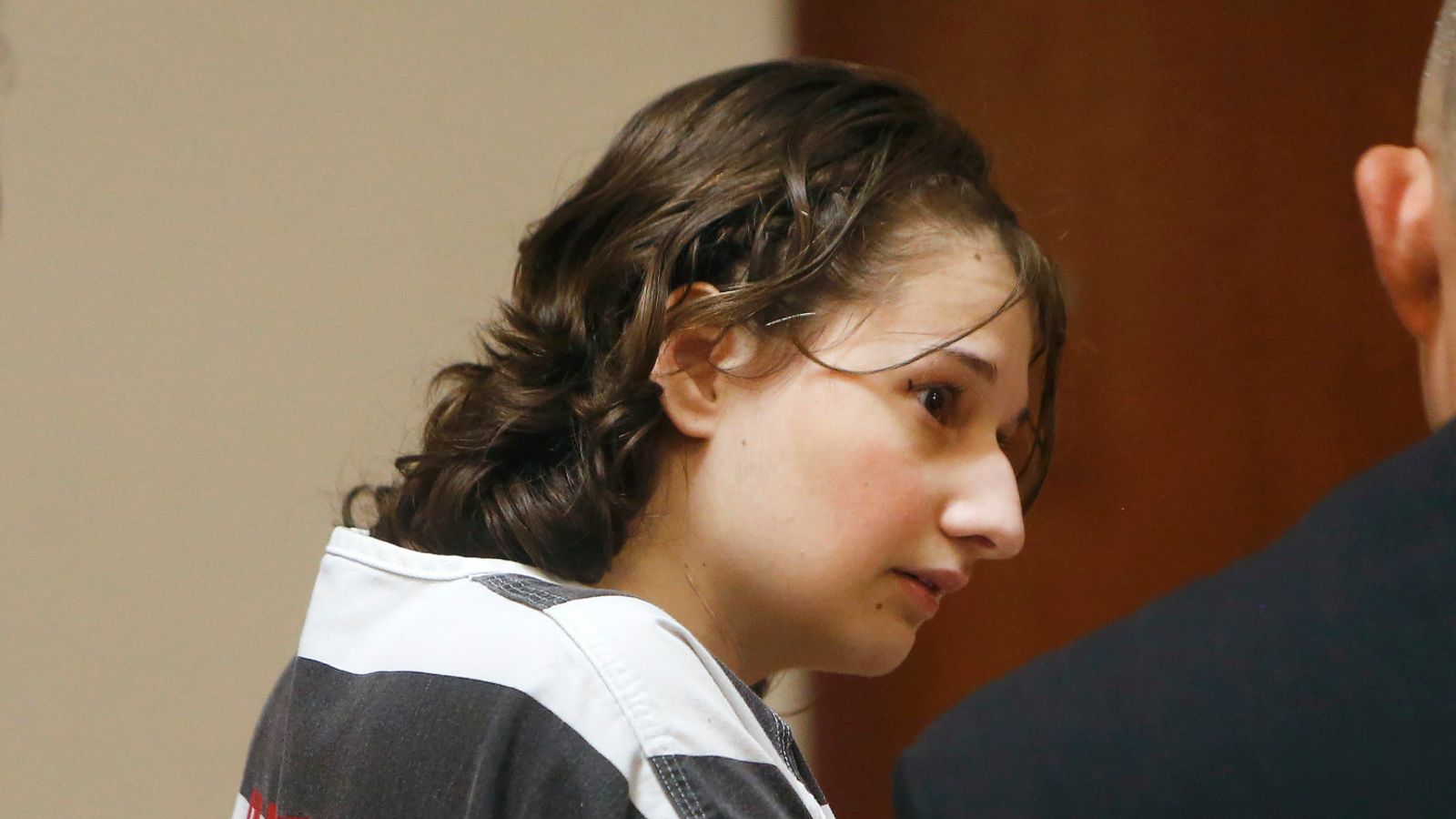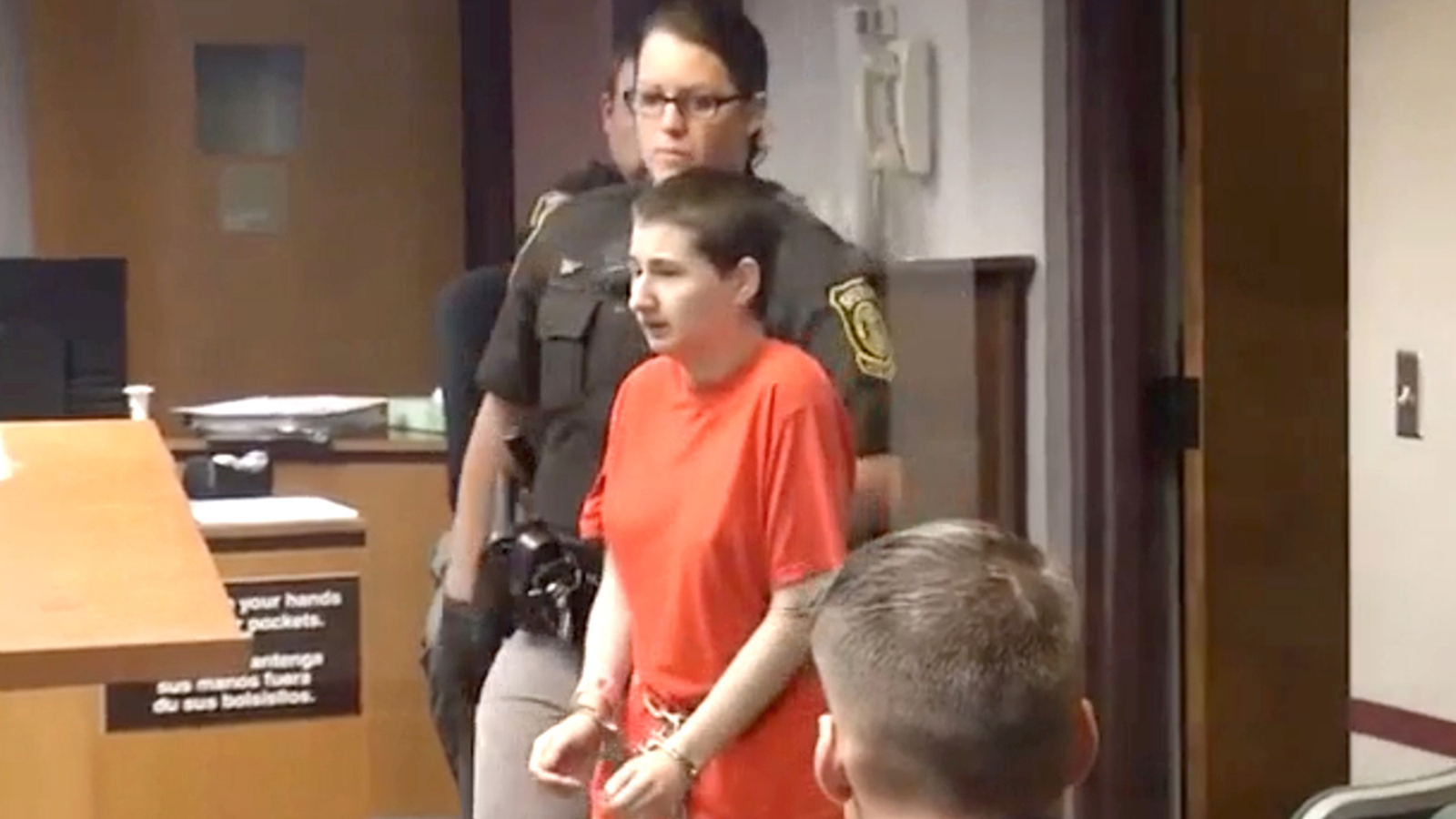Is freedom truly a fresh start, or does the shadow of the past forever linger? Gypsy Rose Blanchard's release from prison on December 28, 2023, after serving a sentence for her role in her mother's murder, ignited a national conversation, prompting a flurry of questions about justice, abuse, and the complexities of redemption.
The case, which captivated the public's attention for years, has once again thrust Gypsy Rose Blanchard into the spotlight. From a young woman ensnared in a web of deception and manipulation to a woman now navigating the outside world, her story continues to fascinate and provoke debate. The circumstances surrounding her release, the nature of her crime, and the subsequent outpouring of public interest highlight the ongoing relevance of her case and its place in the contemporary cultural landscape.
| Full Name: | Gypsy Rose Blanchard |
| Age: | 32 (as of her release) |
| Date of Birth: | Likely 1991, exact date not widely available. |
| Place of Birth: | Likely Louisiana, USA |
| Former Residence: | Springfield, Missouri |
| Conviction: | Second-degree murder |
| Sentence: | 10 years |
| Time Served: | Approximately 8 years and 5 months (85% of sentence) |
| Release Date: | December 28, 2023 |
| Released From: | Chillicothe Correctional Center, Missouri |
| Parole: | Yes |
| Role in Crime: | Planned the murder of her mother, Dee Dee Blanchard, with her then-boyfriend, Nicholas Godejohn. |
| Victim: | Dee Dee Blanchard |
| Motivations (alleged): | Years of medical abuse and manipulation (Munchausen syndrome by proxy) by her mother, combined with a desire for freedom and independence. |
| Significant Media Coverage: | HBO documentary "Mommy Dead and Dearest," Hulu miniseries "The Act" |
| Legal Representation (at trial): | Michael Stanfield and others |
| Current Status: | Released on parole. Her whereabouts and immediate plans are subject to privacy. |
| Reference: | USA Today Article on Release |
Gypsy Rose Blanchard's story is undeniably complex. The details of her life, the abuse she endured, and the tragic events that led to her incarceration have been meticulously examined and dissected by the media and the public. The murder of her mother, Dee Dee Blanchard, was the culmination of a disturbing narrative. Dee Dee, it was later revealed, had subjected Gypsy to years of unnecessary medical treatments and procedures, a form of child abuse known as Munchausen syndrome by proxy. This psychological manipulation, coupled with strict control, created an environment where Gypsy's autonomy was severely limited.
- Perrey Reeves From Entourage To Yoga A Look At Her Life Career
- Remembering Karen Sue Trent A Life In Hollywood Beyond
The events leading up to the murder were, in many ways, a desperate cry for help. Gypsy, desperate to escape her mother's control and the constant lies surrounding her health, communicated with Nicholas Godejohn, whom she met online. Together, they formulated a plan to kill Dee Dee, a plan that was ultimately executed in their Missouri home. The crime shocked the community and ignited a firestorm of media attention.
The ensuing legal proceedings brought to light the shocking details of Dee Dee's abuse. Medical records revealed a history of unnecessary surgeries, medications, and diagnoses that served no medical purpose. Gypsy, who appeared to be a vulnerable child, was, in fact, a victim of a sophisticated form of psychological manipulation. The revelations cast a new light on the narrative, transforming Gypsy from a perpetrator to a product of abuse.
In 2016, Gypsy Rose Blanchard was sentenced to ten years in prison for her role in the murder. Godejohn, the man who carried out the act, received a life sentence. The sentencing marked a turning point in the case, yet it did not bring closure. It served as a reminder of the long road ahead for Gypsy, who would need to grapple with the consequences of her actions while attempting to heal from the trauma she experienced.
During her time in prison, Gypsy took steps toward rehabilitation and self-improvement. She completed educational programs, worked to understand the past, and expressed remorse for her actions. The corrections system granted her parole, allowing her to leave the Chillicothe Correctional Center at 3:30 a.m. on the Thursday of her release, on December 28, 2023. Her release, coming after she served 85 percent of her sentence, marked a significant shift in her life.
The conditions of her parole are standard: She will be under supervision, and her activities and movements will be monitored. Beyond these legal requirements, the realities of life after prison will present new challenges. Finding housing, securing employment, and adjusting to a world that has changed dramatically since her imprisonment are all daunting tasks. The intense public interest in her life means privacy is scarce. The world has witnessed her story unfold. Navigating this scrutiny will require both strength and resilience. Gypsy Rose Blanchard, now 32, must rebuild her life in a world that knows her story all too well.
The question of "where is Gypsy Rose Blanchard now?" is complex. While the exact details of her current whereabouts remain private, the fact that she is out of prison is undeniable. Her release, however, is not an ending. The release presents a new chapter, filled with opportunities, and the inevitable challenges that come with freedom. It is a chance for Gypsy to define her future and determine her own narrative.
The case also raises broader questions about the criminal justice system, child abuse, and mental health. How should society balance accountability with compassion? How does the system adequately address the complexities of abuse and coercion? These are questions that the Gypsy Rose Blanchard case continues to generate. The media coverage, the documentaries, the series, and the ongoing public discussion reveal the lasting impact of the case. It is not merely a true crime story; it is a reflection of societal anxieties about family, justice, and the enduring power of the human spirit.
The case has also highlighted the role of social media in the modern age. The initial discovery of the crime was prompted by a concerning Facebook post, underscoring how technology can serve as both a tool for revelation and a platform for manipulation. The constant stream of updates, opinions, and theories online continues to fuel the conversation. Gypsy has always been in the limelight ever since she set foot in the real world.
The debate about Gypsy Rose Blanchard's culpability continues. Some see her as a felon, rightfully punished for her crime. Others view her as a victim, a young woman trapped in an impossible situation who suffered unimaginable abuse. The nuance of her story resists easy categorization. It demands a deeper understanding of the factors that led to the tragic events. Her release, for many, is a moment for reflection. It is a reminder of the human capacity for both great suffering and the possibility of change.
The media coverage, encompassing everything from HBO documentaries to Hulu miniseries, speaks to the case's enduring fascination. These narratives have added to the complexities of the story, offering varying perspectives on the characters involved and the events that unfolded. Documentaries, in particular, help humanize Gypsy by exploring the years of manipulation and control. These pieces of media have added further weight to the conversation about justice, abuse, and the complexities of the human experience.
The fact that Gypsy served a significant portion of her sentence, 85 percent, underscores the seriousness of her crime. The length of the sentence serves as a measure of the legal system's response to the murder. It also demonstrates the weight placed on the various factors that led to the tragic outcome. The fact that she has been released on parole reflects a balance between retribution and rehabilitation, a common goal within the criminal justice system.
In conclusion, the release of Gypsy Rose Blanchard is a pivotal moment. It allows the world to see the person she has become after years of imprisonment. How she chooses to live her life, how she navigates the complexities of freedom, and how she copes with the past, will shape her future. Her story, a tapestry of abuse, trauma, and ultimately, resilience, will continue to be discussed, debated, and reinterpreted for years to come.
- Steven Greener Meet Tamron Halls Husband Music Exec
- Capricorn Woman Personality Love And Compatibility Explained


